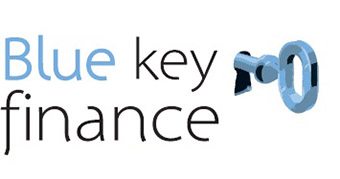How do I compare individual vs a corporate trustee structure?
| Points to consider | Individual Trustees | Corporate Trustee |
| Change of member / Trustee:
When a member joins or leaves there is a change in the SMSF. Hence the SMSF must ensure all titles and names on assets are updated accordingly, including bank accounts, shares, managed investments. If held within the Corporate Trustee structure, the names, titles on assets and bank accounts stay the same even if members change. |
√ |
|
| Change of Trustee:
There are similar complications for individual Trustee SMSFs when a member wishes a person appointed under an enduring power of attorney to become Trustee in their place. Secondly, a member’s death means changes and may require new Trustee appointment. Corporate Trustees can continue on the death of a member. In both situations, less admin is required in the case of a Corporate Trustee as the assets remain in the company name which continues to act as Trustee. The Trustees will however need to ensure ASIC is notified of the change in directorship within 14 days. |
√ |
|
| Costs:
The costs of a Corporate Trustee, particularly in the establishment phase, are higher than those for individual Trustees. Setting up a company for the particular purpose of SMSF Trusteeship, carries with it the cost of incorporation plus an annual ASIC fee. If a company is to be Trustee of a SMSF then it is prudent that the company’s only function is to act as the fund Trustee. That is, it is generally not a good idea for a fund Trustee to also be the company running a member’s business or acting as Trustee of another Trust. It is also important that the Constitution is specifically designed for the purpose of the company – i.e. to operate a SMSF. |
√ |
|
| Knowledge:
If a company is chosen, it is important that the relevant parties familiarise themselves the company rules (i.e. the constitution), as well as the SMSF Trust Deed rules. The company rules will generally include the power to make decisions in certain circumstances, including decisions about changing the rules on rights and obligations, and what happens when the directorship or shareholdings change. Therefore, for SMSFs with a Corporate constitution, there are two sets of rules for members to contemplate – the Trust Deed rules and the company rules. For SMSFs with individual Trustees all the rights and obligations will be set out in the SMSF Trust Deed. |
√ |
|
| Liability:
As Trustee of a Trust, a SMSF Trustee can be subject to litigation. An example is where a contractor is injured while repairing a rental property owned by the SMSF and the contractor subsequently sues for damages. A limited liability Corporate Trustee may provide greater protection of the personal assets of SMSF members than will generally be available to a SMSF with individual Trustees. Individual Trustees may be found liable for the settlement or damages. Your SMSF may purchase appropriate insurance to reduce liability risks. |
√ |
|
| Single member funds:
A Corporate Trustee provides the member the option of being the sole director – i.e. there is no need to involve any other person in the Trusteeship of the SMSF. In contrast, where the individual Trustee option is chosen, the member must be one of two individual Trustees. |
√ |
|
| Separate ownership of fund assets:
One legislative requirement for all SMSFs is the separation of a member’s fund assets from their personal assets. This is particularly relevant in the case of real property as the lands titles office only record the owner of the property, not the capacity in which it is held. More administration is required for individual Trustees to appropriately document the ownership of real property purchased with assets of the fund, compared to when a Trustee company is the legal owner of the real property. A Corporate Trustee structure therefore, can help avoid confusion regarding which assets belong to the SMSF. |
√ |
